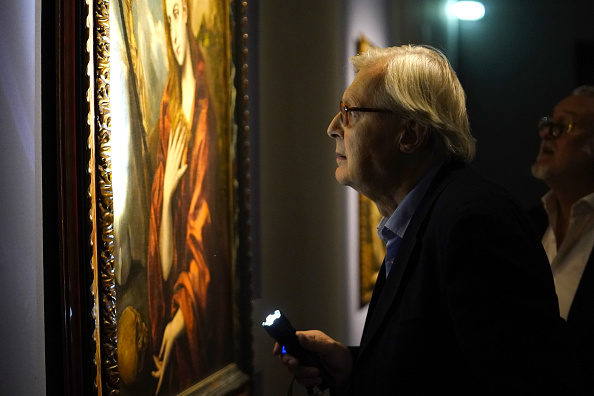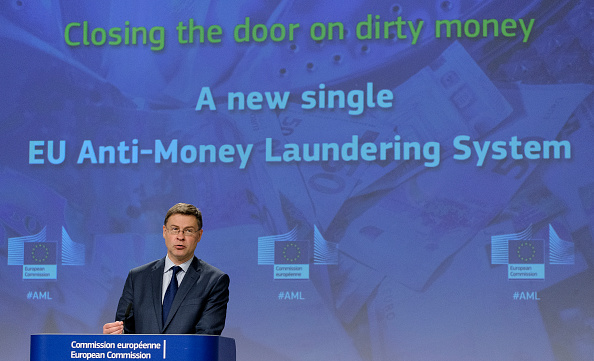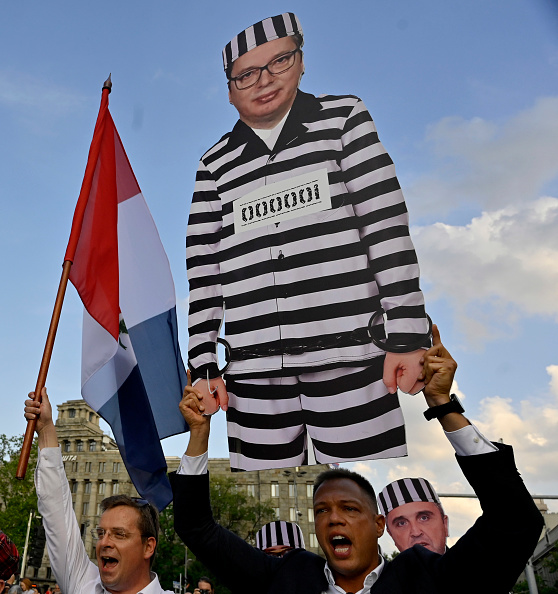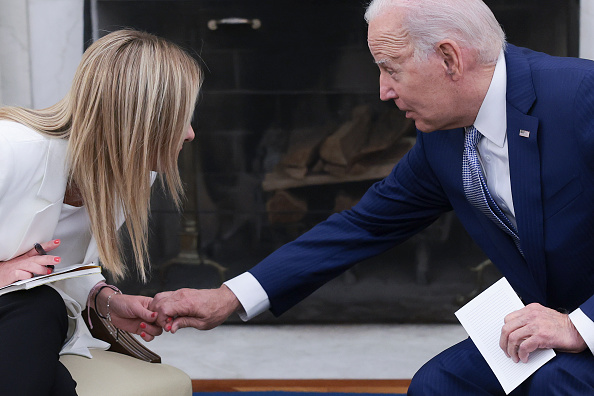In the end, there were no palace coups, no visible pressure to quit. Just a leader who, by all accounts, simply decided to call it a day after a rebuff in two referendums and the prospect of meeting more US presidents with shamrocks.
“I don’t feel I’m the best person for the job anymore”, Varadkar told the cameras March 20, following seven years as party leader, four and a half as Taoiseach.
“I couldn’t find anyone to stab me in the back, so I fell on my sword instead,” he quipped to his parliamentary party that evening.
He cited “personal and political” reasons for the choice, later explaining he had made his decision during a moment of “personal time” the previous Saturday, after returning to Dublin from his St Patrick’s Day official visit to Washington.
There was immediate speculation that Varadkar was making himself free for a senior EU role following June elections, including as Ireland’s EU commissioner, though he appeared to be ruling himself out.
“It’s not for me,” he said, citing his “more than seven years now” of “long days, late evenings and work most weekends, with an awful lot of travel”.
“He had said in the past that he would not stay in politics beyond 50,” said Lucy Keaveney, cofounder of the Countess Markievicz School, a discussion forum for women in Ireland. Leo Varadkar is 45.
Varadkar informed the cabinet of his decision to step down from office the previous evening, March 19.
Most of them now are runners and riders in an unforeseen leadership contest which will be compressed into a fortnight.
Simon Harris, higher education minister “is holding frontrunner position in the early analysis, but it is very early”, says Joanne Lonergan, a former special advisor in the Department of the Taoiseach.
Business minister Simon Coveney, public expenditure minister Paschal Donohoe, and justice minister Helen McEntee are “other big beasts in the arena”, too, she adds.
Harris is said to favour permitting Sinn Féin to form a government after Ireland’s next election, opting instead to be opposition leader.
With 33 seats currently, he believes it could win 40 to 50 by campaigning against Mary Lou McDonald’s Sinn Féin in power.
Harris, who is only 37 years old, also has time to play a waiting game.
Micháel Martin’s Fianna Fáil triggered the country’s last election with a vote of no confidence in Harris as health minister, making it slightly ironic if Fine Gael’s junior coalition partner were to vote to make him Taoiseach in April.
For what it’s worth, on the evening of Varadkar’s resignation announcement, Simon Harris drew the best odds on Paddy Power (1/4), ahead of Donohoe (7/2) and McEntee (9/2).
Social protection minister Heather Humphreys lagged a bit behind (6/1), but comfortably ahead of two younger women ministers from South Dublin who have enjoyed swift rises to the frontbench, Jennifer Carroll MacNeill (at 16/1) and Josepha Madigan (50/1).
The snap nature of the contest is likely to favour someone already well known to the three voting bodies: members (with a quarter of votes), the parliamentary party (with 65 per cent), and local councillors (with the remaining ten).
Of the six people surrounding Varadkar when he made his announcement, five have “been speculated about as his replacement,” Lonergan says.
Fine Gael’s executive council met in the evening of March 20 to begin preparing the leadership contest, aiming to produce a new party leader by the party’s conference (Ard Fheis) April 6, and the Dáil then expected to elect the next Taoiseach April 9.
“I have asked our Party General Secretary and Executive Council to provide for the new Leader to be elected in advance of our Ard Fheis on Saturday, April 6th,” Varadkar wrote in an email to Fine Gael members after the announcement.
Many of the party’s sitting TDs have announced they wished to stand down at the next election.
On March 19, Ciarán Cannon, TD for Galway East, became the tenth to say he would not contest the next election, which must take place before March 2025.
“Trying to replace FG TDs who are literally jumping off a sinking ship…there are much easier ways to make a living”, tweeted one Dublin accountant.
Sinn Féin has enjoyed a lead in polls, on March 2 drawing 27 per cent, ahead of Fine Gael with 20 and its coalition partner Fianna Fáil on 18.
“The landscape for potential future leaders is as yet unclear. There is a small number of real contenders. The coming days will tell a lot,” Fine Gael councillor for Dún Laoghaire Lorraine Hall told Brussels Signal.
“Leo is a big loss to the Fine Gael Party and Irish politics in general. I’ve no doubt today was a very difficult day for him, given his involvement in politics for 20 years,” she added.





